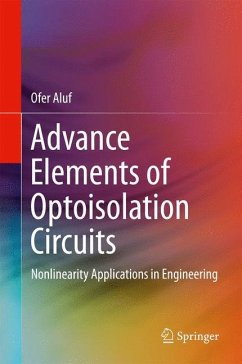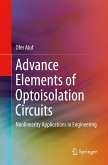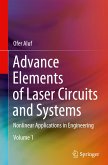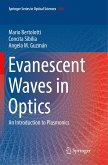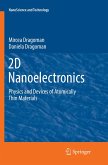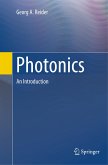This book on advanced optoisolation circuits for nonlinearity applications in engineering addresses two separate engineering and scientific areas, and presents advanced analysis methods for optoisolation circuits that cover a broad range of engineering applications. The book analyzes optoisolation circuits as linear and nonlinear dynamical systems and their limit cycles, bifurcation, and limit cycle stability by using Floquet theory. Further, it discusses a broad range of bifurcations related to optoisolation systems: cusp-catastrophe, Bautin bifurcation, Andronov-Hopf bifurcation, Bogdanov-Takens (BT) bifurcation, fold Hopf bifurcation, Hopf-Hopf bifurcation, Torus bifurcation (Neimark-Sacker bifurcation), and Saddle-loop or Homoclinic bifurcation.
Floquet theory helps as to analyze advance optoisolation systems. Floquet theory is the study of the stability of linear periodic systems in continuous time. Another way to describe Floquet theory, it is the study of linear systems of differential equations with periodic coefficients. The optoisolation system displays a rich variety of dynamical behaviors including simple oscillations, quasi-periodicity, bi-stability between periodic states, complex periodic oscillations (including the mixed-mode type), and chaos. The route to chaos in this optoisolation system involves a torus attractor which becomes destabilized and breaks up into a fractal object, a strange attractor.
The book is unique in its emphasis on practical and innovative engineering applications. These include optocouplers in a variety of topological structures, passive components, conservative elements, dissipative elements, active devices, etc. In each chapter, the concept is developed from the basic assumptions up to the final engineering outcomes. The scientific background is explained at basic and advanced levels and closely integrated with mathematical theory. The book is primarily intended for newcomers to linear and nonlinear dynamics and advanced optoisolation circuits, as well as electrical and electronic engineers, students and researchers in physics who read the first book "Optoisolation Circuits Nonlinearity Applications in Engineering". It is ideally suited for engineers who have had no formal instruction in nonlinear dynamics, but who now desire to bridge the gap between innovative optoisolation circuits and advanced mathematical analysis methods.
Floquet theory helps as to analyze advance optoisolation systems. Floquet theory is the study of the stability of linear periodic systems in continuous time. Another way to describe Floquet theory, it is the study of linear systems of differential equations with periodic coefficients. The optoisolation system displays a rich variety of dynamical behaviors including simple oscillations, quasi-periodicity, bi-stability between periodic states, complex periodic oscillations (including the mixed-mode type), and chaos. The route to chaos in this optoisolation system involves a torus attractor which becomes destabilized and breaks up into a fractal object, a strange attractor.
The book is unique in its emphasis on practical and innovative engineering applications. These include optocouplers in a variety of topological structures, passive components, conservative elements, dissipative elements, active devices, etc. In each chapter, the concept is developed from the basic assumptions up to the final engineering outcomes. The scientific background is explained at basic and advanced levels and closely integrated with mathematical theory. The book is primarily intended for newcomers to linear and nonlinear dynamics and advanced optoisolation circuits, as well as electrical and electronic engineers, students and researchers in physics who read the first book "Optoisolation Circuits Nonlinearity Applications in Engineering". It is ideally suited for engineers who have had no formal instruction in nonlinear dynamics, but who now desire to bridge the gap between innovative optoisolation circuits and advanced mathematical analysis methods.

